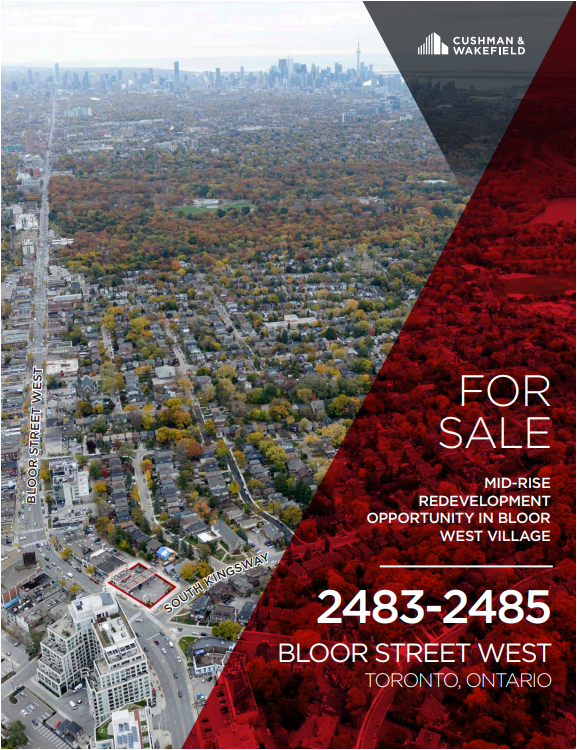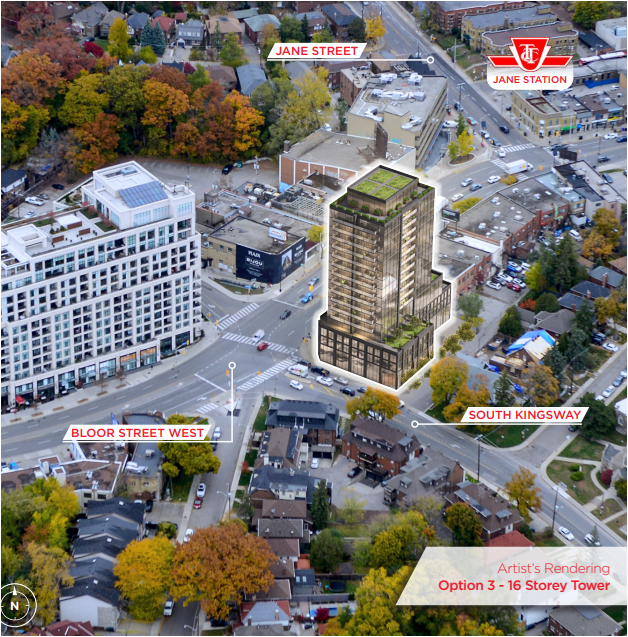ProjectEnd
Superstar
Gas station for sale at Bloor and South Kingsway:






Gas station for sale at Bloor and South Kingsway:


Declining in the city core and moving out as sales not meeting targets and more people not having cars. Most closures are ESSO stations with a number still to go. Land is too value and would generate a higher return that the station in the long run.Starting to see some gas stations disappear do to condo developments in the old Toronto area. Is this a conspiracy to not driving in the city center area. Or are they're going to be relocating them somewhere else in the same area.
Starting to see some gas stations disappear do to condo developments in the old Toronto area. Is this a conspiracy to not driving in the city center area. Or are they're going to be relocating them somewhere else in the same area.
I think the answer is neither: it's not a conspiracy nor are they going to be moved elsewhere. The decision to redevelop gas stations lies entirely with the property owner and their interest is in making money from their land, not maintaining the city's network of gas stations.
As a result it is going to be more inconvenient to get gas in the future, but not because of any sort of active anti-car agenda. It's just the way the dynamic of the market for land and the city's growth will push things. Which in many ways is good in order to disincentivize driving for climate reasons and safety reasons and urban life reasons, but also could become a legitimate logistical issue to some degree for doing business in and getting around the city if all the gas stations close. But that's the direction the dynamics are pushing things in, because for each individual land owner it makes sense to redevelop even though it makes sense for the city as a whole to still have a few gas stations scattered around (at least until a more widespread transition to electric vehicles). In a funny way it is its own sort of tragedy of the commons situation. I say funny because of course the bigger tragedy of the commons situation that this tragedy of the commons will in a small way help to ameliorate is climate change.
As for future stations, that will become an increasingly more difficult prospect as land is way too valuable for people to want to use it as a gas station, especially since gas stations introduce a whole bunch of necessary environmental cleanup to use the land again afterwards, which further disincentivizes gas stations as even a temporary use with the value of land so high and growth so significant. There are small urban-scale gas stations in Europe and other parts of the world that are just kinda like tiny side of the road stations, but I can't see much investment being put into building gas versions of those here with the EV transition on the horizon. That said, there is also a massive amount of infrastructure that will need to be installed in the city both public and private in order to convert over to EVs. Basically: get used to driving in the city becoming more of a pain. And that's probably for the best and as it should be.
Hearing through the grapevine that a proposal is coming for this site. 40 storey range (until the locals revolt, of course)
Hearing through the grapevine that a proposal is coming for this site. 40 storey range (until the locals revolt, of course)
Interesting, while the ft2 of the site does meet the test for a tall building, the lot is unusually shallow for one at ~33M
The City is set to approve the building to the north-east at 10s, three less than asking, with similar depth.
I don't think that (a 40s ask) would fly w/City Planning either.
Yeah, I thought the 13 storey ask to the north-east reasonable without a reduction in height, although the version approved (with a larger floorplate than sought) seems a decent compromise. But 40 storeys here is a really big ask, and a difficult one to fathom, given the utter lack of anything similar in the vicinity.
I also note that the neighbourhood has a lot of hills, and topographically this is a relatively high point, so it will appear especially tall.
I could see something on the site similar in scale and height to the nearby 1728 Bloor West proposal.




